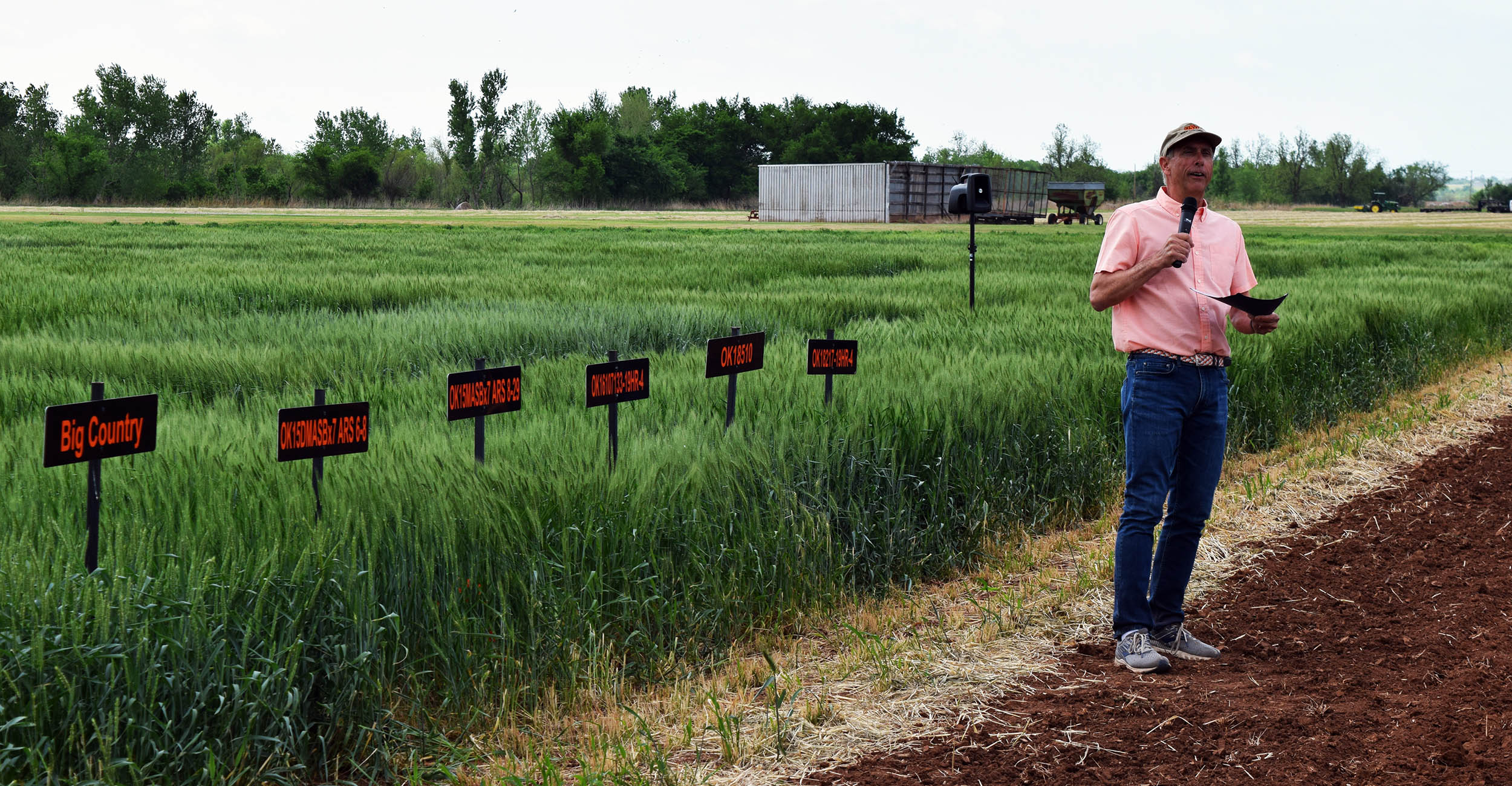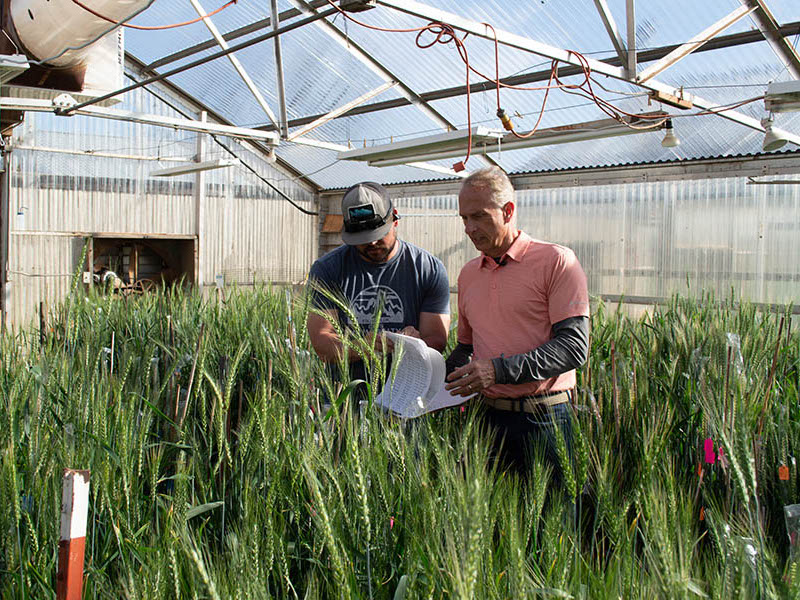
OSU wheat breeding program releases new variety
Thursday, March 9, 2023
Media Contact: Alisa Boswell-Gore | Agricultural Communications Services | 405-744-7115 | alisa.gore@okstate.edu
Oklahoma State University has a new hard red winter wheat variety on its way to the commercial market this fall.
OK18510, which will be called High Cotton, first came into existence in 2010 in what OSU wheat genetics chair Brett Carver called the “maternity ward” of wheat varieties — an OSU greenhouse in Stillwater.
Carver said he chose the variety name of High Cotton because he wanted to draw attention to its elite performance through a name that is easy to remember.
“I wanted to suggest that adoption of this variety would put producers in a position to enjoy a bountiful harvest,” he said.
Wheat is the No. 1 plant commodity in Oklahoma reported by the U.S. Department of Agriculture’s National Agricultural Statistics Service, said Mike Schulte, executive director of the Oklahoma Wheat Commission. Wheat is a $1 billion industry in the state, and data shows that more than 50% of Oklahoma wheat producers grow OSU varieties.
“That’s a great testament to the impact of those varieties, whether they be high-yielding and disease resistant or have traits highly regarded by millers and bakers in both the domestic and international markets,” Schulte said.
He added the name of the new variety is likely to pique producer interest.
“It’s about the OSU wheat breeding program being in the best of times,” Schulte said. “The hope is this variety will make great contributions for the wheat producers in our state over the next five to six years.”
Scott Senseman, associate vice president of OSU Ag Research, said High Cotton’s potential resilience will also be appealing to  producers.
producers.
“Our Wheat Improvement Team continues to move the needle from a yield perspective, but its disease profile appears to provide another level of yield stability that will also be attractive to growers,” he said.
Carver said High Cotton caught his eye in its first year of Oklahoma variety yield trials in 2018.
“It has continued to rank either first or second in our breeding trials for five consecutive years,” he said.
What does High Cotton have to offer?
- The increased yield of this variety is expected to offset potential declines in planted wheat acreage in the future and help maintain the nation’s current food supply.
- With yield, High Cotton exceeds Showdown, Smith’s Gold, Bentley and Gallagher wheat varieties by 5 to 13 bushels per acre. It performed at 17% above average in OSU statewide yield trials.
- Its test weight has averaged 1.2 pounds per bushel above the average research trials, and the Wheat Quality Council found it to have acceptable milling and baking attributes.
- It has dual resistance to leaf and stripe rust as well as resistance to other common wheat diseases in Oklahoma.
- High Cotton is a dual-purpose wheat that provides early grazing opportunities while sustaining winter dormancy.
Performance potential
High Cotton was created by breeding OSU wheat variety Ruby Lee with an experimental line developed in Turkey as part of the International Maize and Wheat Improvement Center breeding program, the largest wheat breeding program in the world. This hybrid was then crossed with an OSU experimental line bred from a collection of Pioneer hard red winter wheat.
“High Cotton will allow wheat producers to reap the benefits of the most advanced wheat genetics currently on the market,” Carver said. “We hope that wheat growers from eastern Oklahoma to far western Oklahoma will have an interest in adopting High Cotton in their next variety lineup.”
Scientists in the OSU wheat breeding program intend to have seed available this fall.
“If we get it harvested as we anticipate, we should have 3,000 to 4,000 bushels of foundation seed available through the Oklahoma Foundation Seed Stocks,” Carver said.
To learn more about the High Cotton variety, watch the next SUNUP TV episode. Learn more about OSU’s wheat program and the Wheat Improvement Team and find resources for producers on the Wheat Research and Extension website or by contacting your county OSU Extension office.
